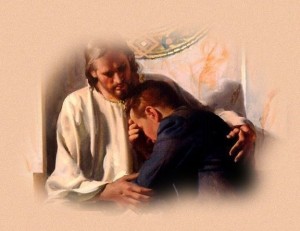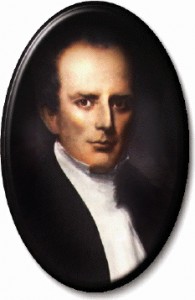The Daily Choice: Reacting or Responding (Chapter Four)
We continue our study of Roy Hession’s classic work on personal revival, The Calvary Road by examining a major theme found in chapter four: choices. In order to enjoy the constant, conscious loving presence of our Savior, I must make moment-by-moment choices to trust him. Trusting the Lord means laying down my life, my pride, my selfishness, and trusting his goodness, his wisdom, and his sovereign purposes (Phil.1:27-30). I choose to trust my Lord with people and their attitudes, circumstances and their disruptions, and situations and their disappointments (Heb. 11:6).
Holiness consists of daily yielding to God my experiences of the Fallout of the Fall: sinning people, selfish actions, broken things, and disrupted plans (Phil. 3:7-8). The issue of holiness is not what people do to me, but how I respond to their fallenness (Heb. 12:14-15). My choice: respond by thanking the Lord for difficult people and situations or react with burning anger toward God and others over my frustrating circumstances.
Amy Carmichael says that nothing anyone can do to us can injure us unless we allow it to cause a wrong reaction in our spirits. Only our reaction can bless or burn.
Paul Billheimer, Mystery of God’s Providence (Wheaton: Tyndale House, 1983), 15.
Hession emphasizes that God sovereignly uses people’s faults to challenge our own unbrokenness. My pride, stubbornness, and selfishness are revealed when I feel slighted and overlooked. Do I get angry when I am not praised? Do I get easily offended when people do not do what I want? Do I harbor ill feelings when others do not recognize my efforts?
Do not let us imagine that we have to be broken only once as we go through the door. Ever after, it will be a constant choice before us. God brings His pressure to bear on us, but we have to make the choice. If someone hurts and slights us, we immediately have the choice of accepting the slight as a means of grace to humble us lower or we can resist it and stiffen our necks again with all the disturbance of spirit that that is bound to bring. Right the way through the day our brokenness will be tested, and it is no use our pretending we are broken before God if we are not broken in our attitude to those around us. God nearly always tests us through other people. There are no second causes for the Christian. God’s will is made known in His providence, and His providences are so often others with their many demands on us. If you find yourself in a patch of unbrokenness, the only way is to go afresh to Calvary and see Christ broken for you and you will come away willing to be broken for Him (Hession, The Calvary Road, pg. 49).
Emotionally reacting to my circumstances resists and rejects God’s working in the midst of my disappointment. My reacting leads to anger deepening into a bitter and unteachable spirit. My frustration and impatience expresses disbelief in God’s sovereign working in my daily affairs.
It is almost terrible to live with these thoughts pressing on one’s heart – that one can never speak a word, never transact a piece of business, that one’s face is never seen lighted up with the radiance of God, or clouded and despondent, without it being harder or easier for other men to live a good life. Every one of us, every day, resembles Jeroboam, the son of Nebat, who made other men sin; or we are lifting other men into the light, and peace, and joy of God. No man liveth to himself, and no man dieth to himself; but the life of every one is telling upon an increasing number of mankind. What a solemn responsibility it is to live!
F. B. Meyer, Devotional Commentary on Philippians (Grand Rapids, MI: Kregel Publications, 1979), 116.
Responding is trust. I believe that my Heavenly Father has a divine appointment in my various trials and tribulations. I counter my flesh and believe God’s goodness by trusting his sovereign hand in the baffling and trying times. I may not understand “why,” but I choose to trust God, my Heavenly Father, who is good, loving, and gracious. I believe that my Lord has my best in mind and he is not rejecting me by allowing difficulties. Responding comes forth from a thankful heart drawing me into the Holy Spirit’s wellspring of grace. Responding says “yes” to God in my daily circumstances and looks for opportunities to grow in my intimate love relationship with Christ (James 4:6).
We must see our circumstances through God’s love instead of, as we are prone to do, seeing God’s love through our circumstances.
Jerry Bridges, Christian Quote of the Day website, daily email, May 21, 2005.
It is God’s grace that enables us to make righteous choices throughout the day (2 Cor. 12:9-10, Titus 2:11-14). Sanctifying grace is Jesus being the desire, ability, and power in me to respond to every life situation according to the will of God. Jesus is my desire for he works in me a hunger for holiness. Jesus is my ability for he enables me to make godly decisions and choices. Jesus is my power for he strengthens me to overcome the world, the flesh, sin, death, and the devil. Grace is the person, Jesus, living his life in and through me empowering me to live a righteous and holy life.
DeVern Fromke, Life’s Ultimate Privilege (Cloverdale, Ind.: Sure Foundation, 1986), 118.
My daily choices matter –my choices are the difference between abiding and sinning.








